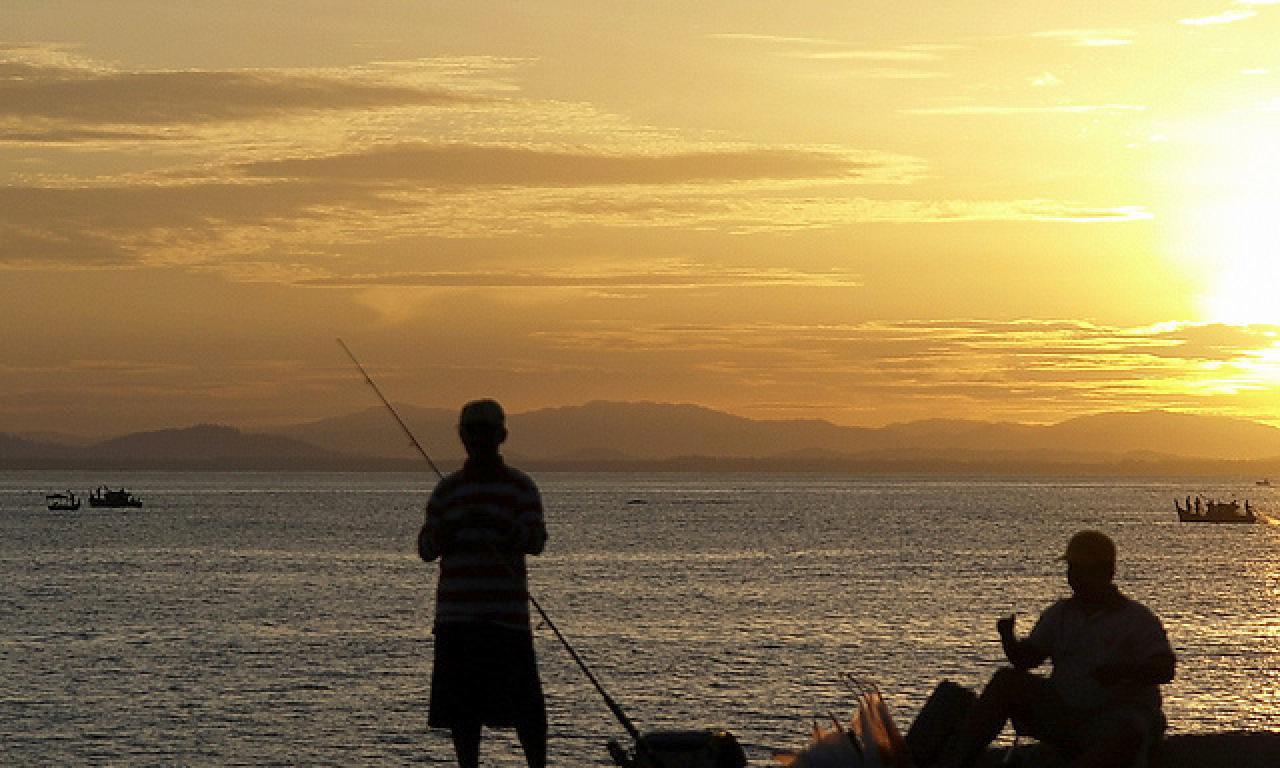
“Stewardship is not only an environmental concern, it's also a health, economic, food security and moral issue,” US Secretary of State John Kerry in his address to the Global Oceans Action Summit for Food Security and Blue Growth. Oceans elicit emotional reactions in many people. They are places where we swim, fish, sail or simply watch the world go by. Yet, increasingly, we hear troubling messages that oceans are under grave threat from overfishing, pollution, climate change and more. These messages move us to take action. But, what actions can right past wrongs and create future opportunities?
Recommended publications
- Outlook for fish to 2020: a win-win-win for oceans, fisheries and the poor?
- Governance structures and sustainability in Indian Ocean sea cucumber fisheries
“Stewardship is not only an environmental concern, it's also a health, economic, food security and moral issue,” US Secretary of State John Kerry in his address to the Global Oceans Action Summit for Food Security and Blue Growth.
Oceans elicit emotional reactions in many people. They are places where we swim, fish, sail or simply watch the world go by. Yet, increasingly, we hear troubling messages that oceans are under grave threat from overfishing, pollution, climate change and more. These messages move us to take action. But, what actions can right past wrongs and create future opportunities?
There is a growing need to start talking about how changing our approach to protecting our oceans can generate future opportunity. This is the concept of Blue Growth. The concept is powerful and was a recent focus of the Global Oceans Action Summit for Food Security and Blue Growth, held in the Hague. (I wrote about what blue growth means for me in the run up to the Summit)..
The overall conclusions from the Summit make perfect sense: reform fisheries in ways that ensure they deliver equitable benefits; sustain growth of aquaculture while minimizing the growth of its ecological footprint; and ensure that both of these contribute to rural economies and support broader development objectives.
These conclusions are important and align closely with our own WorldFish priorities, but they are too general to be actionable. What was refreshing about the Summit, however, was the clear desire of the organizers to go beyond generalities and get specific about what we need to do. Here are the three specific actions that I found most compelling as remedies that can result in real gains for our oceans.
1. Ratify the Port State Measures Agreement and implement a global vessel database
If one were to prioritize the challenges our oceans face, the issue of illegal fishing would rank near the top. But, there is a solution. We have a draft international agreement on Port State Measures that will systematize country obligations to monitor and record what fish are landed and by whom.
With vast areas of ocean, catching law breakers at sea is close to impossible, so focusing on ports makes sense. Governments need to ratify the Port State Measures Agreement and combine it with a global record of fishing vessels, refrigerated transport vessels and supply vessels so that illegal fishing is harder to get away with.
2. Develop new financing approaches
There is a lot of discussion about the need for new approaches for getting the capital markets to make the investment needed to foster blue growth. How, for example, do we develop investment vehicles to finance sustainable growth of a highly fragmented aquaculture sector, characterized by large numbers of small and medium enterprises? What financing arrangements can we put in place that would support reform of small-scale fisheries?
Adapting the ‘green bond’ concept to construct ‘blue bonds’ is one promising option, but it requires clear examples of projects that deliver returns with acceptable risk. This will require investment by philanthropic foundations and governments at the “venture capital” stage to mitigate risk for commercial and impact investors and establish proof of concept.
3. Talk more
Perhaps the most important recommendation from the Hague summit was to convene inter-sectoral, national dialogues on oceans that bring together public agencies, the private sector, civil society and local communities and develop national action plans for growth.
It might seem somewhat paradoxical to highlight a recommendation for more talk as a priority action. But, if we are to map durable pathways for blue growth, multi-stakeholder discussion at national level is essential.
Developing national dialogues, directed toward collaborative exploration and resolution of problems will often be difficult and demanding. We must avoid “consultation" processes structured to legitimize pre-selected technical solutions to pre-conceived and often poorly defined problems. Instead, we must draw on positive examples, like the one described by Blake Ratner and his colleagues, which illustrates how carefully prepared dialogue processes can help to successfully reform politically contentious fishery problems.
In June, US Secretary of State John Kerry will be hosting an ocean conference in Washington, DC. Identifying the next steps needed to support these three remedies will take us a long way toward a better future for our oceans.